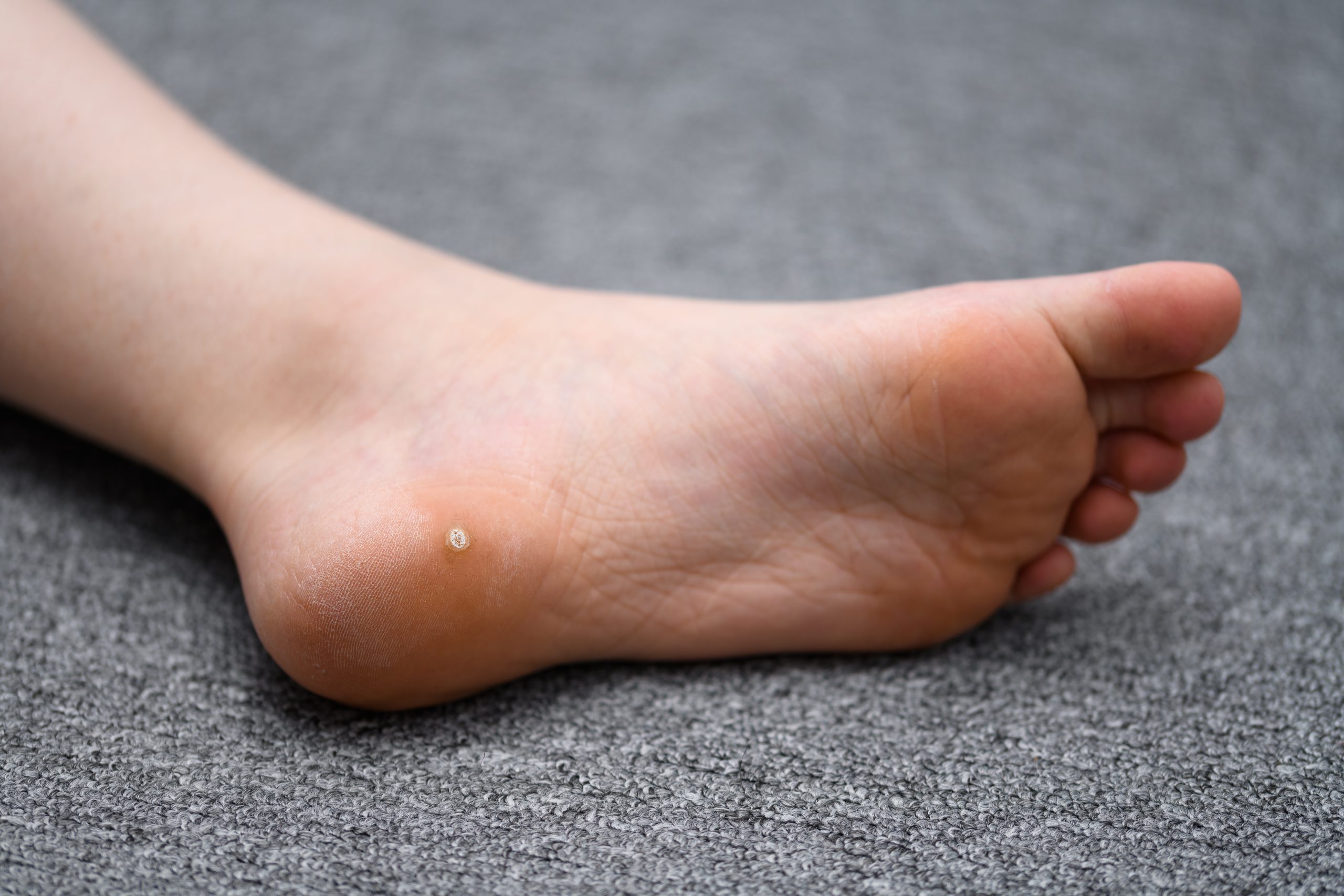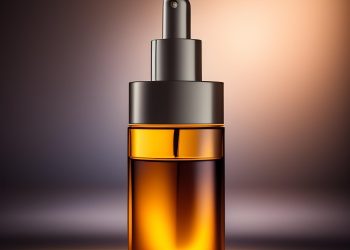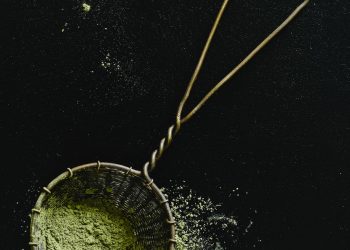Plantar fibroma or lederhosen is a non-cancerous tumor in the fibrous tissue (plantar fascia) on the sole of your feet.
The thick Plantar fascia tissue is responsible for stabilizing the arch of the feet. The lesion, about an inch in size, can grow on both the feet’ soles. The rare condition affects middle-aged men more than women. [1]
A small plantar fibroma can cause discomfort and pain while standing, wearing shoes, or walking barefoot. Most often, plantar fibroma nodules disappear on their own. However, if the bump continues to grow and causes too much pain (Plantar Fasciitis), you should visit a doctor. [2]
Some home remedies using essential oils may help reduce the growth and pain of plantar fibroma. Researchers suggest numerous essential oils’ anti-inflammatory and analgesic qualities may help treat plantar fibroma. [3]
This article contains the best essential oil remedies for plantar fibroma, the potential causes of the condition, and much more.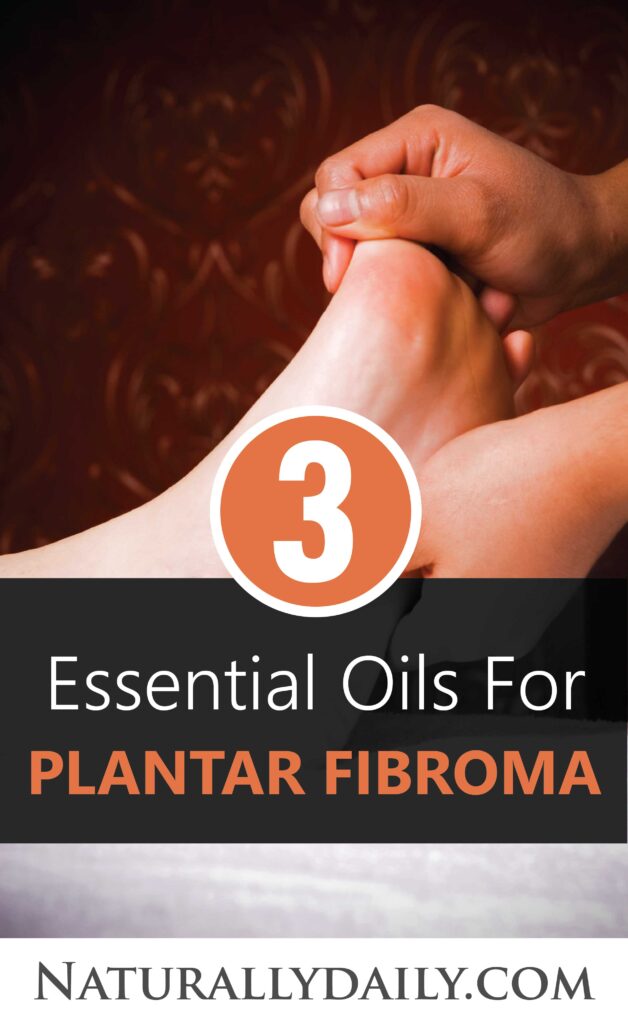
Potential Causes of Plantar Fibroma
The medical experts are unsure of the reasons behind developing plantar fibroma and how to prevent its occurrence. However, certain factors may increase the chances of plantar fibroma. [2] These include:
Genetic: Researchers suggest that the Northern European populace is at higher risk of developing plantar fibroma.
Injury: Tears in the fascia tissue may result in the growth of nodules due to some injury.
Side effects of medications and supplements: Certain high blood pressure, anti-seizure medicines, and vitamin C supplements may lead to excess cells or collagen growth in the plantar fibrous tissues.
Medical conditions: Certain diseases such as chronic liver problems, diabetes, and seizures may cause plantar fibroma.
Best Essential Oils for Plantar Fibroma
1. Eucalyptus Essential Oil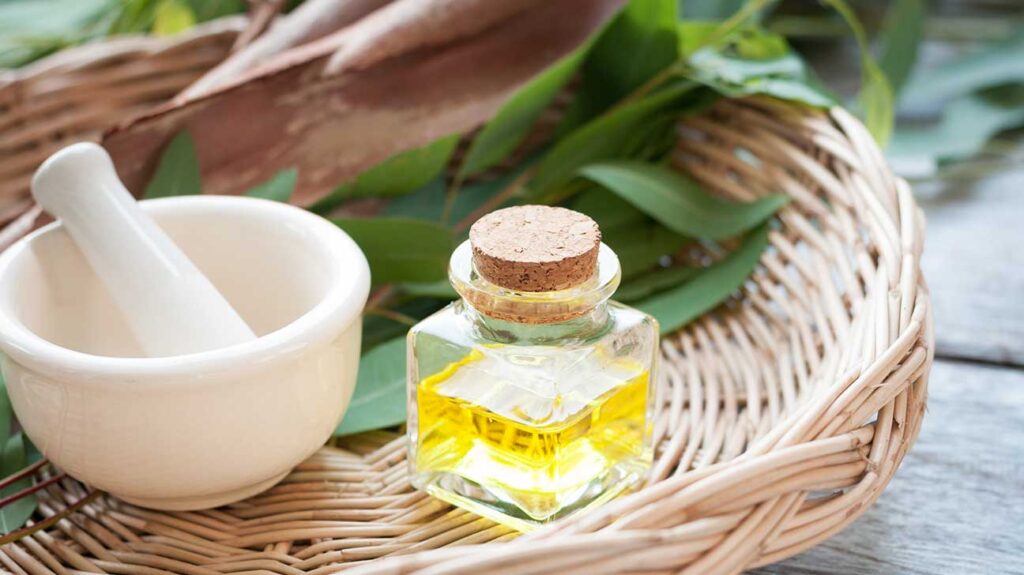
Eucalyptus oil comes from the leaves of the Eucalyptus globulus or Eucalyptus salicifolia trees belonging to the Myrtaceae plant family.
The medicinal plant is a native of Tasmania, Australia, and other continent islands.
Eucalyptus essential oil contains important therapeutic components, including the potent 1 cineole, 8 cineole, and Eucalyptol. The bioactive compounds are powerful antioxidants, anti-inflammatory, and analgesic agents. [4]
Traditionally eucalyptus oil is a home remedy for congestion, phlegm, cold, fever, body pain, inflammations, and so on. Eucalyptus oil massage on the sole of the feet may reduce the pain and benign plantar fibroma growth. In addition, the oil’s analgesic properties can reduce the pain, swelling, and soreness related to plantar fibroma.
You must dilute 2-3 drops of eucalyptus oil in your preferred carrier before the foot massage.
2. Lavender Essential Oil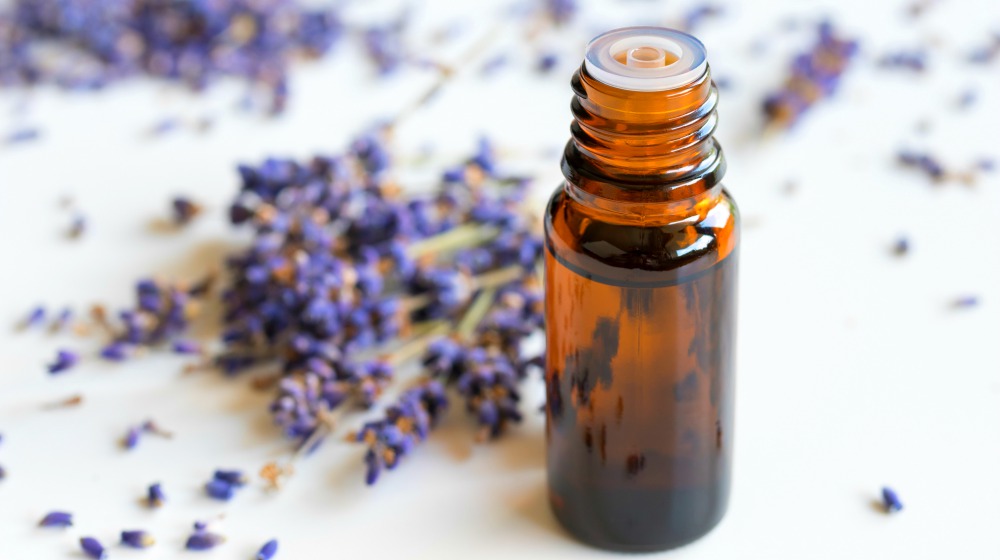
Lavender oil is probably the most popular essential oil in the world. The aromatic oil is steam distilled from the flower tops of certain lavender or Lavandula species. The medicinal plant belongs to the mint family of Lamiaceae and is native to Mediterranean regions.
Researchers confirm numerous beneficial effects of lavender oil when applied to the skin. The oil can lessen the pain, inflammation, irritations, bumpy skin growth, acne, etc. [5]
Lavender oil is very soothing to the skin and has little risk of allergic reactions. However, diluting the oil in some carrier oil before topical applications is always wise.
The active therapeutic components of lavender oil include 1,8-cineole, a-pinene, linalool, limonene, terpinene-4-oil, camphor, and linalyl acetate. These chemical components have potent analgesic, muscle relaxing, and anti-inflammatory effects beneficial for plantar fibroma treatment. [5]
3. Rosemary Essential Oil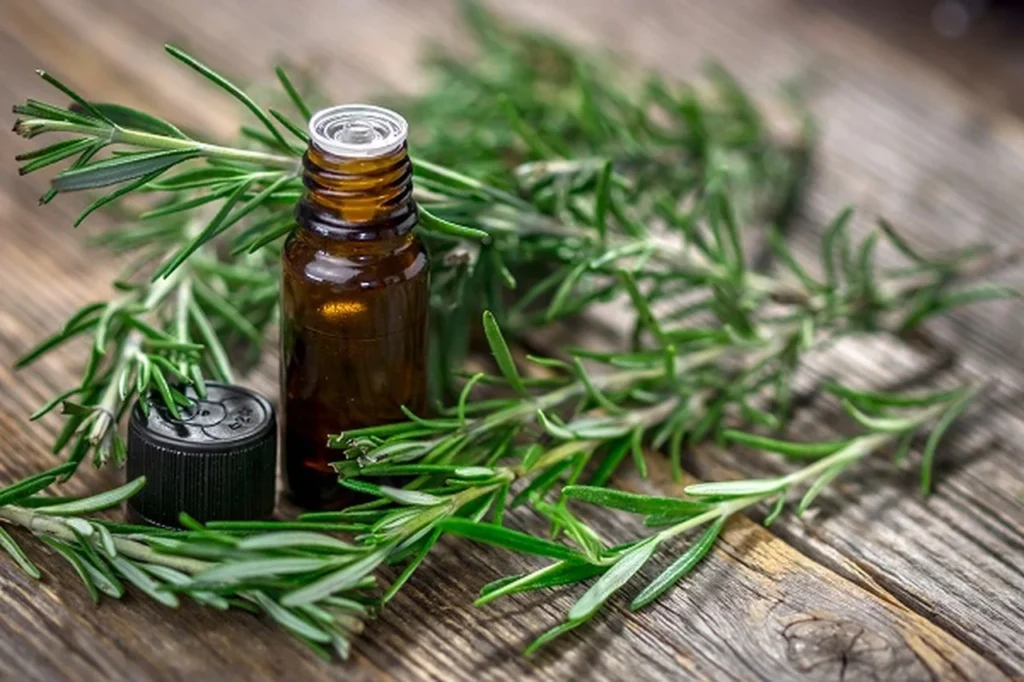
Rosemary oil comes from the needle-like leaves and flowers of the evergreen rosemary or Rosmarinus officinalis shrub.
The woody scented therapeutic oil has numerous benefits for the skin, hair, and health.
Recent medical experiments have investigated the major chemical constituents of the oil for medicinal values. For example, rosmarinic acid, carnosic acid, carnosol, and ursolic acid have potent antioxidant, anti-inflammatory, and analgesic qualities.
A topical application of rosemary oil may be an effective remedy for treating plantar fibroma pain, soreness, and bumpy growth. [6]
Plantar Fibroma- When to See a Doctor
Essential oils for plantar fibroma are not alternative to conventional treatment options. However, the essential oils may reduce the symptoms of the condition temporarily.
If the pain and lumpy plantar fibroma growth continue, it will help if you visit a doctor for proper diagnosis and treatment.
The doctor may physically examine the foot to identify the lump and confirm whether it’s plantar fibroma. Sometimes the doctor may ask for an X-ray, MRI, or biopsy of the affected feet. [7]
Some conventional treatment options for plantar fibroma are over-the-counter topical gel, anti-inflammatory drugs such as corticosteroid injections, acupuncture, stretching exercises for the feet or other physical therapies, and surgery in the most serious cases.
Bottom Line
A plantar fibroma is not a serious medical condition. It causes inflammation, pain, and benign lumps or bumps on the feet. However, the condition may affect your daily life as you may face discomfort and irritation while wearing shoes, standing, or walking.
The essential oils for plantar fibroma discussed here can minimize the pain, inflammation, and soreness to a great extent. However, you must dilute these essential oils before a topical application to avoid the risk of allergic rashes.
If the painful condition persists and the foot lumps continue growing, consult a doctor for diagnosis and appropriate treatments.
Read Next: 4 Best Essential Oils for Hand, Foot, and Mouth Disease


